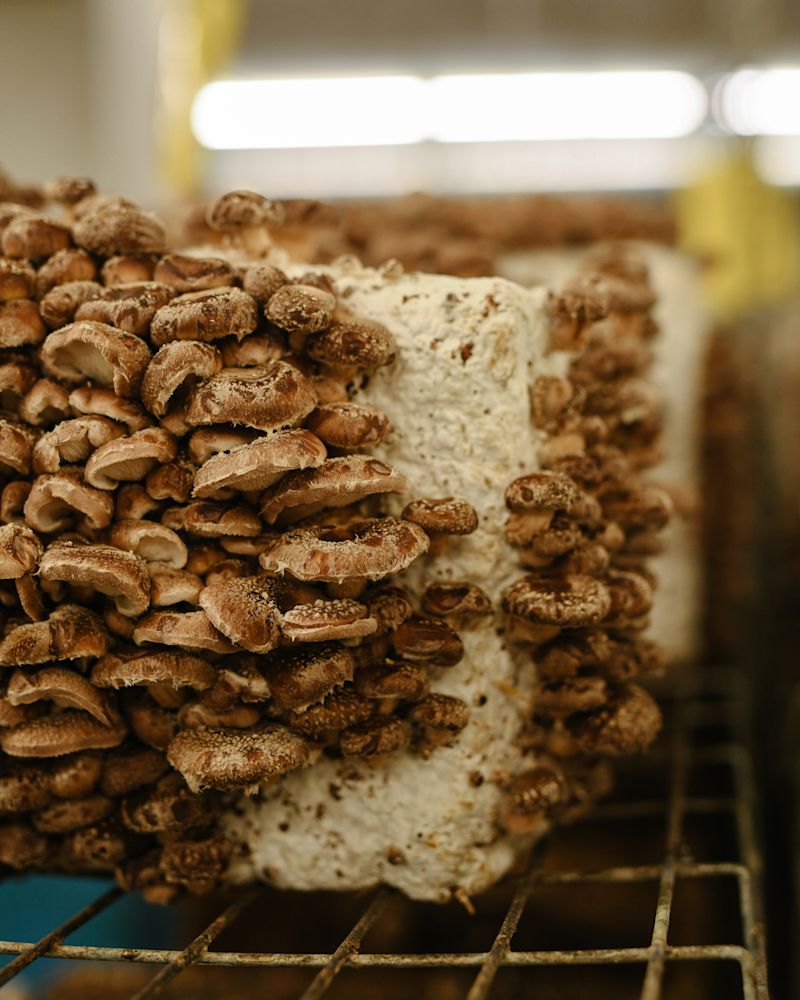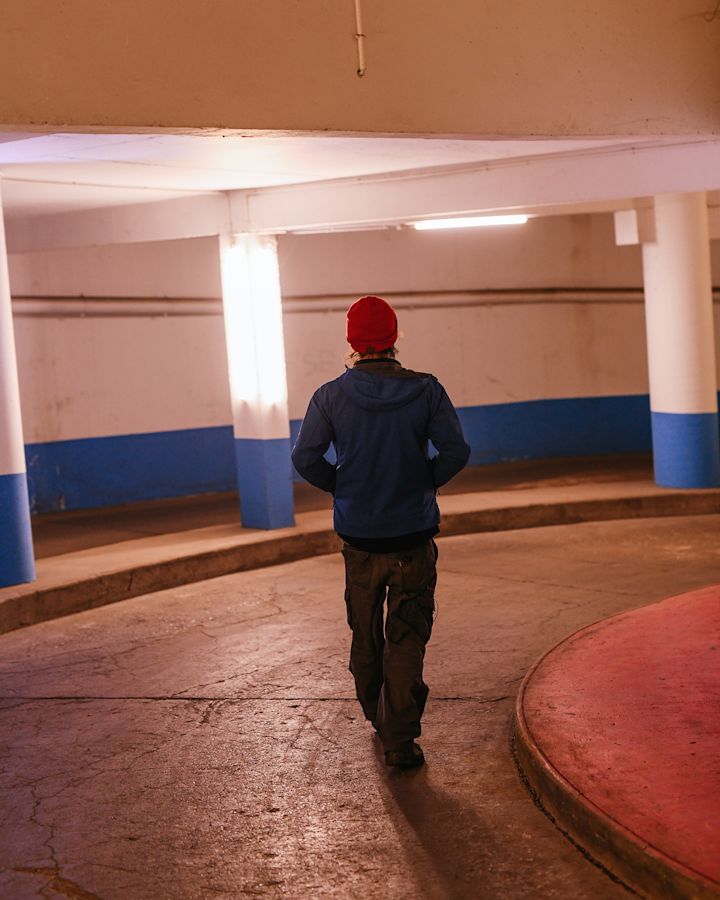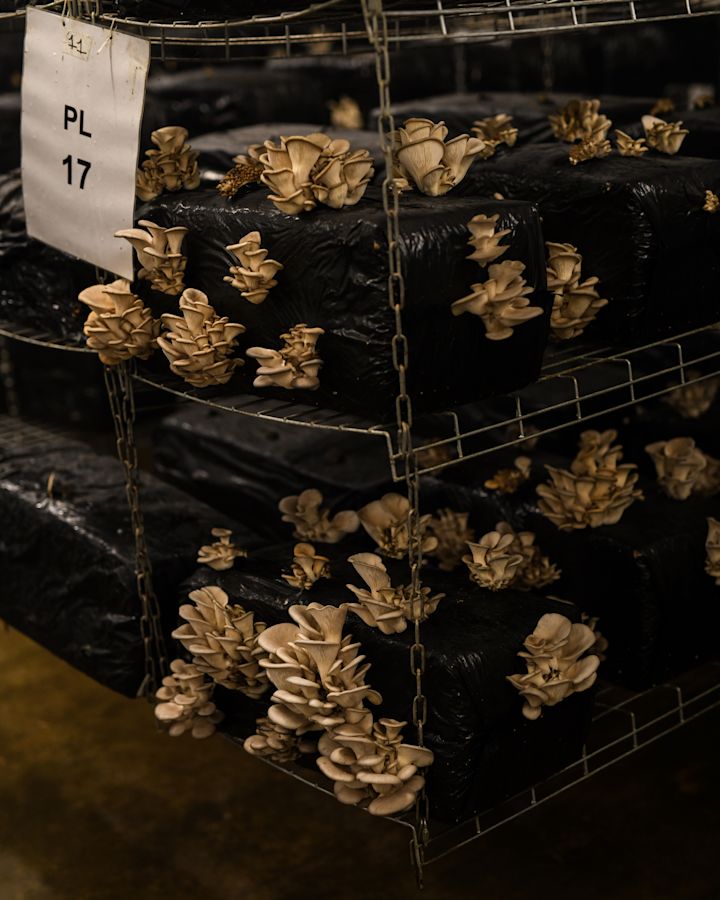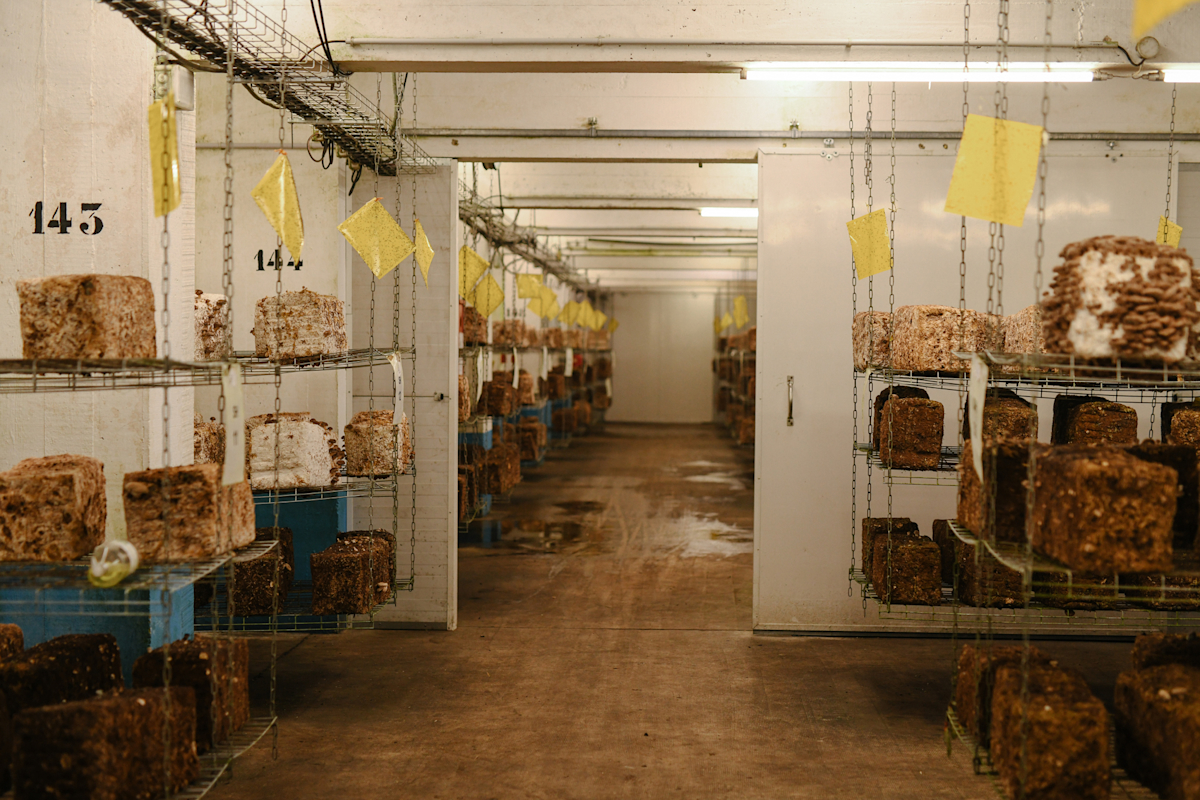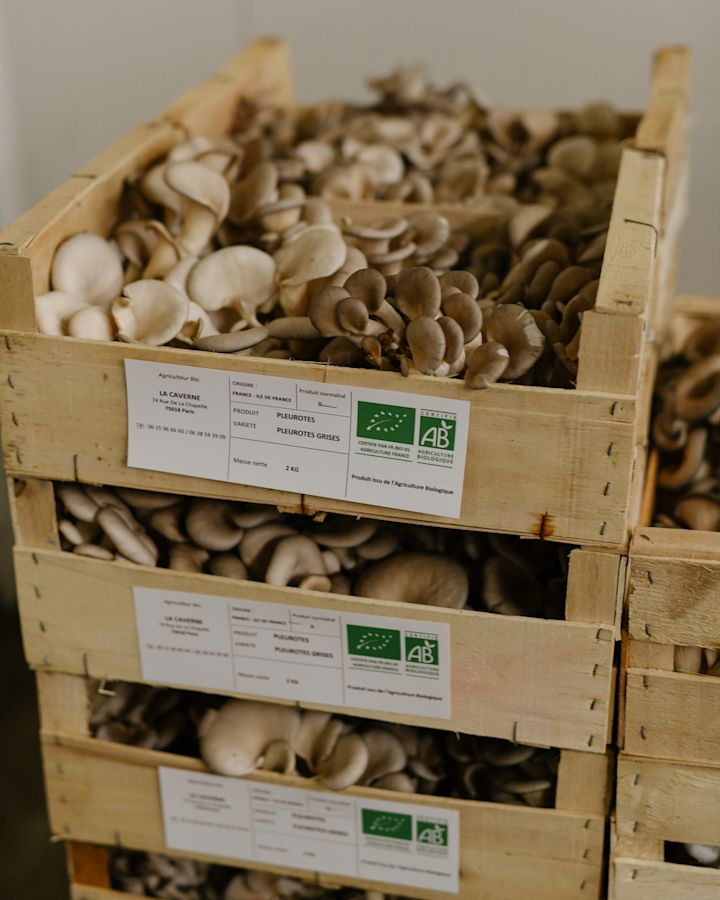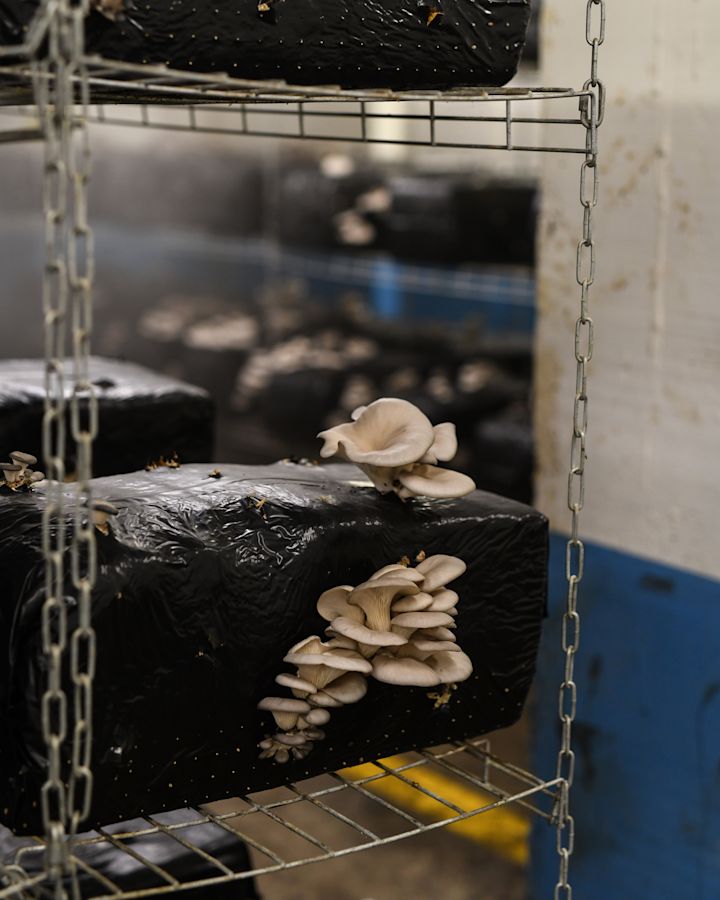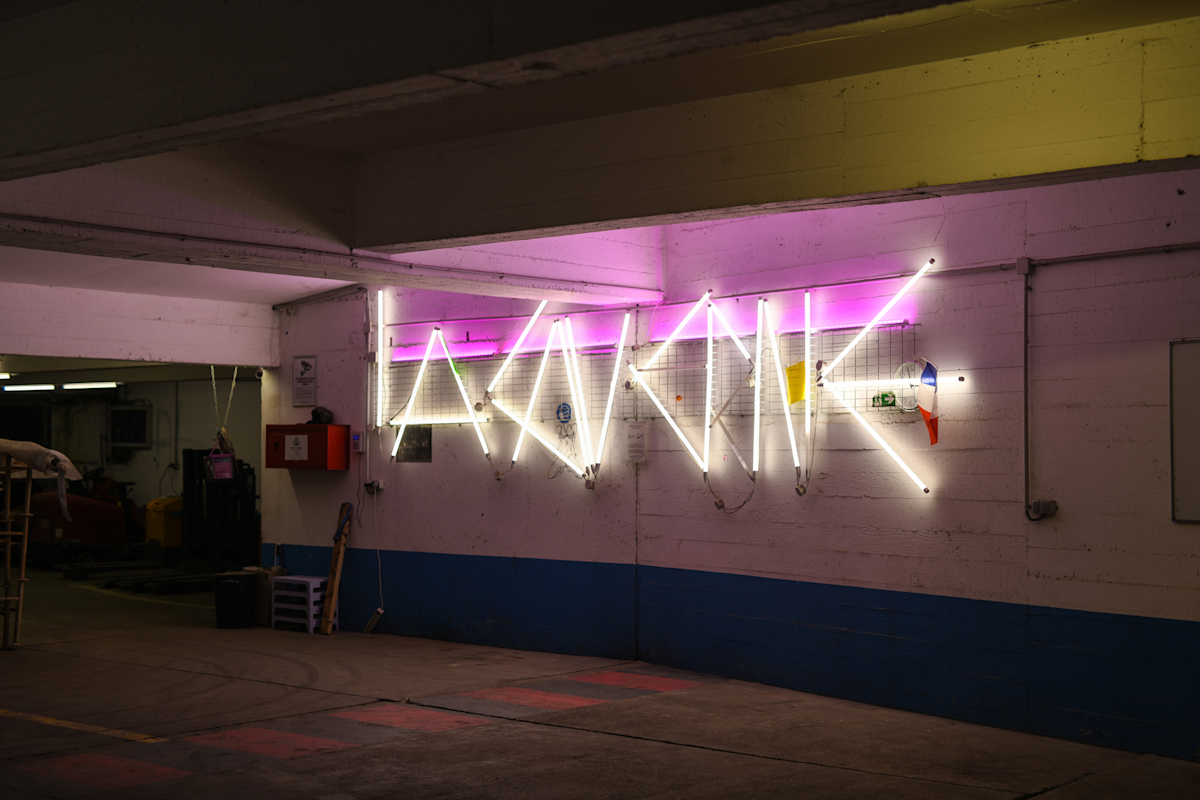Dark and damp concrete corridors often lead to unexpected spaces. Somewhere in the 18th arrondissement of Paris an otherwise inconspicuous parking lot is host to such a place. It isn’t a Berghain-esque rave that you’ll find here but it is home to creatures that seem to prefer the shadows as well. La Caverne happens to be Paris’ only organic urban farm. I spoke to Jean-Noël over the phone, one of the founders of this agrifood- start-up, to learn more.
In the bowels of this social housing apartment complex, the fruit of the fungus sprout from rows of lego-like blocks created from organic material. And I am told a faint umami smell of toasted sesame fills the air. At La Caverne, you’ll find a variety of mushrooms, as well as chicory and mircro-sprouts. All of these crops mostly prefer to stay out of the sun, some even thrive in total obscurity. “Mushrooms would typically grow in the shade of a tree, so we do have a little light for them… and for us”.
The “us” consists of about 10 employees per site, some of which live in the apartments just above. As I understand it, these futuristic farmers zip through the site’s 1,200 square meters on electric scooters. A scene that likely wouldn’t surprise you in any other start-up office. However, Jean-Noël tells me their methods are traditional, simply implemented in surprising ways. “If there is any innovation, it’s in the design”, he adds. The farm aims to minimize their carbon footprint and have a sustainable practice, in a broad sense. Everything is done on site, from growing to conditioning to distributing locally. Deliveries are made by bicycle, to local co-ops, restauranters and farmers markets.
Growing Shiitake mushrooms in its own temperature-controlled section of the underground farm.
The Parisian production opened in 2017. The founders of La Caverne - Jean-Noël Gertz, a thermal engineer, and Theo Champagnat, an agronomist, met in said location during a visit organized through a city initiative to develop urban farming sites in the capital. Located near Porte de La Chapelle, in the North of Paris, this multi-story car park had emptied considerably following a ban on older cars which was put into place as part of an anti-pollution initiative. This effected lower-income families in particular, who weren’t able to replace their vehicles with newer models, leaving this space unused. This explains why the residents weren’t hostile to but rather intrigued by the pair’s initiative.
La Caverne has prioritized not only local but hyper-local involvement. Again, they look to hire people living in the very buildings that tower above their production. They also donate around 1 ton of mushrooms to their neighbors, to student coops and refugee organizations every year. All while their quality, proximity and subsequent freshness has enticed the likes of notable gourmets such as the Ducasse group.
Mushrooms’ popularity is undeniably on the rise globally. If you haven’t been asked if you’ve watched the Fantastic Fungi documentary at least 10 times during quarantine, what planet are you living on? (I’ve begun to say yes, just to avoid another long-winded amateur review). Of course, they have always been a staple of the French diet, but new frontiers, such as alternatives to animal products and wellness supplements, have increased the demand for them. Gertz tells me that they produce a whopping 10 tons of mushrooms a year. These are exclusively of the culinary varieties (mainly Oyster and Shitake). However, Jean-Noël tells me they plan on opening new sites and a lab, thus broadening the possibilities. In the space that they don’t occupy, La Caverne hosts other food-tech companies with similar values and needs, which process anything from spirulina to shellfish.
Repurposing (or “recycling” as they put it) these abandoned spaces, which required relatively little adaption to develop these cultures, seems to have been first and foremost a smart economic model in the otherwise potentially precarious field of growing food. When I ask Jean-Noël how the first of his farms near Strasbourg found refuge in an old bunker, he simply states “there are just a lot of them there”. Once again necessity seems to be the mother of invention. Still, I can’t help but see the poetry of bringing life back to these structures, that may otherwise be perceived as vestiges of destruction (whether it be violence or pollution). And, most optimistically, a new wind into the communities built around them. From refugee to Michelin-star chef, from vegan to those who eat Kosher or Hallal, La Caverne caters to its community as a whole. And while Gertz is matter of fact, “we aren’t political, we run a business”, I get a sense he knows there is definitely more to it. La Caverne helps me begin to see the fungi, neither plant nor animal, in a new light. Much like in the forest, the mycelium might very well create more symbiosis in our urban ecosystems’ futures.



















